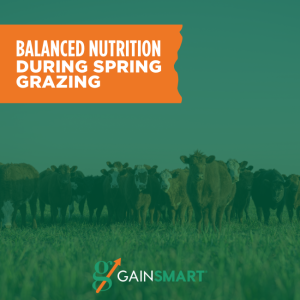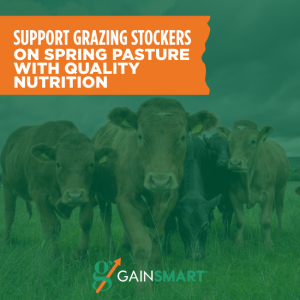
As Summer slowly gives way to Fall, the daylight hours get shorter each day. It also means time is nearing for those who graze and background calves to finalize their marketing strategy for the year. Several marketing options exist for those who have backgrounded their calves. They can sell them privately, take them to the local auction market, sell them on the video market or a combination of those using one or several value-added programs.
Regardless of the marketing venue, some considerations need to be taken that will make the calves more appealing to the buyer. Jason Barber, Superior Livestock Auction, reminds feeders to keep these things in mind before marketing calves.
Make Health a Priority
Barber encourages all people marketing their calves to partake in a good vaccination program. The healthier calves are when they’re sold and delivered, the faster they typically grow and perform, and those are things buyers look for year after year.
“The number one thing right now is you want to have your calves on a good vaccination program. Back in 1995, when Superior started its vaccination programs, 40-some percent were unvaccinated. Compared to these days, less than 1% that sell on Superior aren’t vaccinated,” he said.
Uniformity Matters
When it comes to putting load lots of cattle together Barber says that keeping the group uniform will definitely keep the buyer happy and help add value to the lot. This includes having a group of same-gender calves that are close to the same weight and same color. Barber said that the more uniform in all cases, the more potential they have to generate a premium because they can potentially fit more feedlots’ scenarios and ultimately more packers’ scenarios.
“If you have the numbers to separate steers from heifers, they typically get along better than mixed loads. The heifers bring the steers down more than the steers bring the heifers up when it comes to price the majority of the time,” Barber said. “Also, groups containing a hodge-podge of colors are less likely to bring a premium versus a uniform color group. It’s best to sell a group of all straight black or black baldies or reds/red baldies. If possible, I would avoid putting off-colored calves with blacks or black-white-faced calves.”
Nutrition Makes an Impact
For veteran stockman Ray Fussell, having his calves on a high-quality nutrition program has made a substantial difference over the past few years. The Fussell family has been backgrounding cattle for three generations. Fussell typically buys the southeastern type calves every winter and feeds and grazes them on his Tennessee Ridge, Tenn., farm through the next summer. He started feeding the Gain Smart® Stocker mineral to his calves in 2018 and has experienced significant gains and healthier calves.
“The Gain Smart mineral is excellent. We fed Gain Smart to about 30% of the cattle we grazed last summer. This year we fed either Gain Smart Stocker or Gain Smart Stocker HEAT® to everything. Once again, our cattle are heavier, hair coats are better, and they spend more time grazing and less time in the shade. For the first time in many years we are selling cattle at auction. We feel the mineral is getting us increased water intake and less shrink, and that’s all because of the Amaferm®. We are very pleased with it,” Fussell said.
Amaferm is a precision prebiotic designed to enhance digestibility by amplifying nutrient supply for maximum performance. It is research-proven to stimulate digestion and nutrient absorption of forage for optimum gain as well as maintain performance during heat stress. Gain Smart Stocker HEAT contains plant extracts that help support the animals’ ability to maintain normal body temperature and garlic, to deter insects.
Building Relationships
Fussell said that he traditionally either retains ownership through the feed yard or sells his calves to a repeat buyer through private treaty. He said selling to the same buyer has definite benefits to both he and his cattle buyer because they have built a strong relationship on trust over the years.
“When you work with the same folks, you get a certain level of trust on both ends, and you get a certain amount of comfort as far as financial risk goes. You know how to represent the cattle better without them having to come look. They know the kind of cattle that we have had throughout the years. They know the kind of program they’ve been on,” Fussell said. “I can call him today and tell him I’ve got a load of steers that’s going to weigh about 825. I’m going to describe them to him, and he’s going to know that’s pretty much how it’s going to be. He’s able to talk to his buyers and to put something together without driving out here every time.”
Selecting a Marketing Venue
Fussell typically sells his calves privately and has for years. He said he appreciates many aspects of selling privately: the relationship with his buyer, the flexibility on delivery dates and knowing he’s got his calves to a reputable person. However, this year he made the decision to sell his calves at the local livestock auction.
He said the biggest advantage for him to sell through the livestock market auction was utilizing resources he didn’t have readily available to him on his farm – scales – and since the local auction barn had added large pens with shade and water, he could haul his calves in the night before and his calves would have the comforts of home with minimal shrink.
“We don’t own our own scales, so it isn’t convenient to check weigh cattle. That leaves us having to guess weights when negotiating slides and weight stops. If you exceed a weight stop or have a set of cattle come in light, you can afford to pay some commission. The auction market has large covered pens with feed and water, so we can carry those cattle up there the night before and not suffer the same shrink when cattle are held in small pens. It might not be the best thing to do every time but selling through an auction is still an efficient way to market your cattle.”
The Power of a Program
Barber agrees that building relationships is key and an important marketing component regardless of which marketing venue a person chooses. Since those relationships are significant, he said, the more information you can give your buyer, the stronger the relationship becomes.
“Believe that more information is better, and information is power,” Barber said.
The information that he advocates for leads to premiums paid to the seller through value-added programs. A myriad of value-added programs exists for the producers whose management styles allow for the time and additional resources to meet the program requirements. Programs are available for genetics, health protocols, nutrition and more. Superior introduced its first value-added program in 1995, with its first-ever vaccination programs, and has since led the way with other programs. Today, sellers can earn premiums from more than a dozen programs when selling through Superior.
“You can tell the cattle that are verified-natural, NHTC and GAP are bringing a premium across the board, regardless of what the market is. If I’m a producer and I want to capture the highest premium, I’d want to do all that, but it takes work. There are definitely more resources that go into it, but to me the premiums they are going to receive, regardless of the market, makes it worth the effort,” Barber said.
BioZyme® Inc., makers of the Gain Smart mineral, became the first-ever and 2018 exclusive nutrition company for Superior Livestock Auction’s value-added programs. Two nutrition programs are available to sellers, VitaFerm Raised and Gain Smart. The VitaFerm Raised and Gain Smart Programs were designed to ensure that calves have been on a high-quality nutrition program, an important part of overall health, important to both the seller and the buyer. Calves sold through Superior were either being raised on a cow that was being fed the VitaFerm mineral, or calves that had been weaned previously were being supplemented with Gain Smart.
Barber said anyone that is interested in marketing their cattle through Superior should contact him or their Fort Worth office prior to calving so they can introduce them to a rep in their area to start making management and marketing plans for the calf crop before it hits the ground. This helps ensure they have the best chance to receive the most premiums on the cattle they are selling.
It’s good to have choices, and when it’s time to market your feeder calves, you have several choices. Sell them via a local auction market, build long-lasting relationships with a buyer or discover added premiums through value-added programs. Whichever venue you choose, make sure you have a load lot, group by uniformity and keep health and nutrition top of mind.

